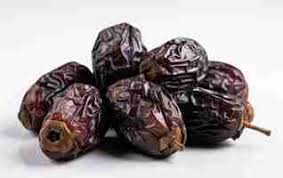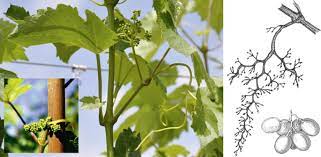The Cashew Fruit: Economic Importance, Uses, and By-Products
The cashew fruit, scientifically known as Anacardium occidentale, is the fruit produced by the cashew tree. It consists of two main parts: the cashew apple and the cashew seed (nut). The cashew apple is a pear-shaped structure that emerges from the tree alongside the cashew nut.
The cashew apple is juicy and pulpy, with a sweet and tangy flavor reminiscent of a combination of pear and mango. It is prized for its refreshing taste and is enjoyed as a fresh fruit in many tropical regions where cashew trees grow. However, it is fragile and highly perishable, making it challenging to transport long distances for commercial sale.
While the cashew apple is consumed fresh in some regions, it is also used to make juices, jams, jellies, and alcoholic beverages such as wines and spirits. In some cultures, the cashew apple is also fermented to produce a vinegar-like condiment.
Despite the delicious taste and potential culinary uses of the cashew apple, it is the cashew seed (nut) that is more widely known and valued. The cashew seed is attached to the bottom of the cashew apple and is encased in a hard shell. It is this seed that is processed and sold as the cashew nut, which is highly sought after for its rich flavor, creamy texture, and nutritional benefits.
Overall, the cashew fruit is a versatile and delicious tropical fruit with both culinary and commercial significance. While the cashew nut is the primary focus of commercial cultivation and trade, the cashew apple also holds value as a source of refreshing beverages and culinary ingredients in regions where cashew trees are grown.
The Economic Importance and Uses of Cashew Fruit

1. Juice Production: Cashew fruit is used to produce juice, which is consumed fresh or processed into beverages such as nectar, concentrate, or wine, contributing to the beverage industry’s diversity and profitability.
2. Culinary Delicacies: Cashew fruit is used in various culinary dishes, including salads, desserts, jams, and sauces, adding a unique flavor and tropical twist to recipes.
3. Food Processing: Cashew fruit pulp can be processed into jams, jellies, candies, and preserves, extending the fruit’s shelf life and creating value-added products for the food industry.
4. Nutritional Benefits: Cashew fruit is rich in vitamins, minerals, and antioxidants, offering numerous health benefits such as boosting immunity, promoting digestion, and improving skin health.
5. Traditional Medicine: In traditional medicine practices, cashew fruit extracts are used for their medicinal properties, treating ailments such as stomach disorders, inflammation, and respiratory issues.
6. Agricultural Diversification: Cashew fruit cultivation diversifies agricultural landscapes and provides alternative income sources for farmers, particularly in tropical regions where cashew trees thrive.
7. Livestock Feed: Cashew fruit by-products such as peels and pulps can be used as feed supplements for livestock, enriching their diets with essential nutrients and reducing feed costs for farmers.
8. Cosmetic Industry: Cashew fruit extracts and oils are used in cosmetics and skincare products for their moisturizing, rejuvenating, and anti-aging properties, enhancing product formulations and promoting skin health.
9. Jam and Preserve Production: Cashew fruit jams and preserves are popular spreadable condiments enjoyed with bread, pastries, or cheese, creating market opportunities for small-scale food processors and artisans.
10. Culinary Innovation: Chefs and food manufacturers continually explore new ways to incorporate cashew fruit into innovative dishes and products, contributing to culinary creativity and gastronomic experiences.
11. Agro-tourism: Cashew fruit orchards attract tourists interested in agro-tourism experiences, offering opportunities for farm visits, fruit picking, and learning about cashew cultivation and processing.
12. Export Market: Cashew fruit products such as juice, preserves, and concentrates are exported to international markets, generating revenue and foreign exchange for cashew-producing countries.
13. Environmental Conservation: Cashew fruit cultivation promotes environmental conservation by preventing deforestation, enhancing soil fertility, and providing habitat for wildlife in agroforestry systems.
14. Research and Development: Ongoing research and development efforts focus on improving cashew fruit cultivation techniques, post-harvest handling, and product innovation to maximize economic potential and sustainability.
15. Community Development: Cashew fruit cultivation supports rural communities by creating employment opportunities, income generation, and infrastructure development in cashew-producing regions.
16. Value-Added Products: Cashew fruit is utilized to produce value-added products such as syrups, sauces, ice creams, and confections, catering to diverse consumer preferences and market demands.
17. Waste Reduction: Efficient utilization of cashew fruit minimizes waste generation in cashew processing facilities, promoting circular economy principles and resource efficiency.
Read Also: 8 Steps to Successful Perennial Pasture Establishment
The Products and By-products That Can Be Derived From Cashew Fruit

1. Cashew Fruit Juice: Fresh cashew fruit is juiced, pasteurized, and packaged for consumption as a refreshing beverage or processed into concentrates, nectars, or alcoholic beverages such as wine or liquor.
2. Cashew Fruit Pulp: Cashew fruit pulp is extracted and processed into jams, jellies, preserves, or fruit spreads, offering a sweet and tangy flavor profile suitable for various culinary applications.
3. Cashew Fruit Syrup: Cashew fruit syrup is produced by boiling cashew fruit pulp with sugar and water, resulting in a thick, sweet syrup used as a topping, flavoring, or ingredient in beverages and desserts.
4. Cashew Fruit Wine: Fermented cashew fruit juice produces cashew wine, a popular alcoholic beverage with a fruity aroma and mild flavor, enjoyed as a standalone drink or paired with meals.
5. Cashew Fruit Concentrate: Cashew fruit concentrate is produced by evaporating water from cashew fruit juice, resulting in a concentrated form used as a base for beverages, sauces, or flavorings.
6. Cashew Fruit Jam: Cashew fruit jam is made by cooking cashew fruit pulp with sugar and pectin until thickened, creating a spreadable condiment enjoyed on toast, pastries, or sandwiches.
7. Cashew Fruit Ice Cream: Cashew fruit pulp is incorporated into ice cream formulations, adding a tropical fruit flavor and creamy texture to frozen desserts enjoyed by consumers worldwide.
8. Cashew Fruit Chutney: Cashew fruit chutney is prepared by cooking cashew fruit pulp with spices, vinegar, and sugar, creating a savory condiment or dipping sauce served with meats, cheeses, or snacks.
9. Cashew Fruit Candy: Cashew fruit pulp is processed into candies or chewy treats, offering a natural sweetness and fruity flavor profile enjoyed by consumers of all ages.
10. Cashew Fruit Desserts: Cashew fruit pulp is used in various dessert recipes such as pies, tarts, cakes, and pastries, adding a tropical twist and vibrant color to sweet treats.
Read Also: Crop Yield Estimation and Agriculture Science with GIS
Frequently Asked Questions (FAQ’s) About Cashew Fruit

1. Is cashew fruit the same as cashew nuts?
No, cashew fruit refers to the fleshy fruit surrounding the cashew nut, which grows on the cashew tree. The cashew nut is the seed or kernel found inside the hard shell of the cashew fruit.
2. Can you eat cashew fruit raw?
Yes, cashew fruit can be eaten raw, and it is commonly consumed fresh or juiced. The cashew fruit has a sweet and tangy flavor with a juicy texture, similar to other tropical fruits.
3. How do you extract juice from cashew fruit?
To extract juice from cashew fruit, the fruit is washed, peeled, and the pulp is separated from the seed. The pulp is then blended or pressed to extract the juice, which can be consumed fresh or processed further.
4. What are the health benefits of cashew fruit?
Cashew fruit is rich in vitamins, minerals, and antioxidants, offering various health benefits such as boosting immunity, promoting digestion, and improving skin health. It is also a good source of dietary fiber and hydration.
5. Can cashew fruit be used in cooking?
Yes, cashew fruit pulp can be used in cooking to prepare a variety of dishes such as jams, sauces, desserts, and beverages. Its sweet and tangy flavor adds a tropical twist to recipes.
6. Is cashew fruit juice available commercially?
Yes, cashew fruit juice is available commercially in various forms such as fresh juice, concentrates, nectars, and flavored beverages. It is commonly sold in supermarkets, health food stores, and online platforms.
7. What does cashew fruit wine taste like?
Cashew fruit wine has a fruity aroma and a mild flavor with notes of tropical fruits such as mango, pineapple, and citrus. It is often described as refreshing and slightly acidic, similar to other fruit wines.
8. Can cashew fruit products be stored for a long time?
Cashew fruit products such as jams, preserves, concentrates, and wines can be stored for a long time if properly sealed and stored in a cool, dry place away from direct sunlight. Refrigeration may extend their shelf life.
9. Are there any allergens in cashew fruit?
Some individuals may experience allergic reactions to cashew fruit, particularly those with sensitivities to tropical fruits or latex. It’s essential to consult a healthcare professional if you have known allergies or intolerances.
10. Are there any culinary restrictions when using cashew fruit?
Cashew fruit can be used in a variety of culinary dishes and recipes, but individuals with latex allergies or sensitivities to tropical fruits should exercise caution or avoid consuming cashew fruit products.
Read Also: Practical Steps to Convert Printer Cartridges Wastes into New Printer Cartridges









